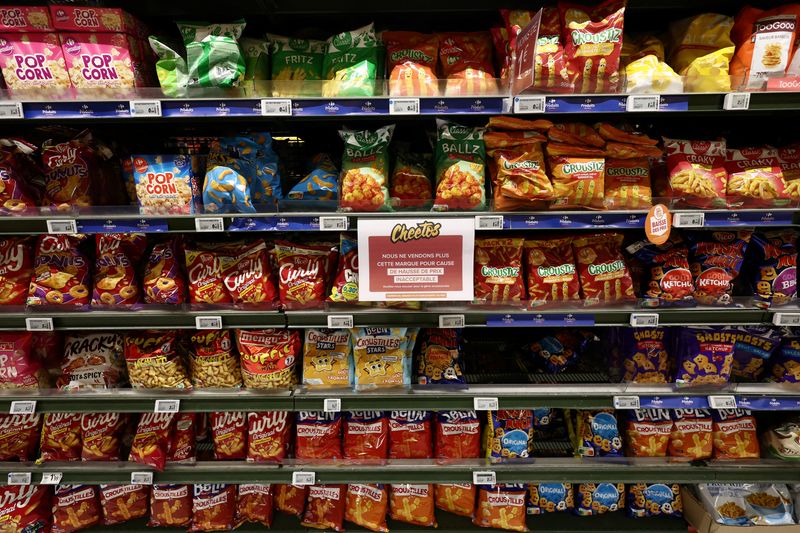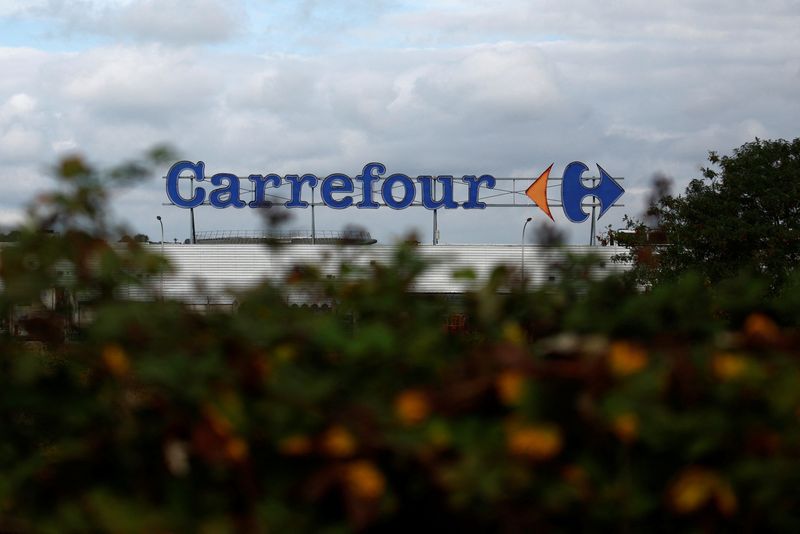By Piotr Lipinski and Helen Reid
PARIS (Reuters) -Carrefour is telling customers in four European countries it will no longer sell products, such as Pepsi, Lay's crisps and 7up because they have become too costly, in the latest tug-of-war over prices between retailers and global food giants.
From Thursday, shelves for PepsiCo (NASDAQ:PEP) products at Carrefour (EPA:CARR) stores in France, Italy, Spain and Belgium will carry signs saying the store will no longer be stocking the brands "due to unacceptable price increases", a spokesperson for the French supermarket giant said.
Carrefour's move impacts more than 9,000 stores across the four countries, amounting to two-thirds of the retailer's global footprint of 14,348 stores according to its 2022 annual report.
Grocery retailers in several countries including Germany and Belgium have similarly stopped orders from consumer goods firms, a tactic in price negotiations that have become more fraught due to inflation.
"We've been in discussion with Carrefour for many months and we will continue to engage in good faith in order to try to ensure that our products are available," PepsiCo said in a statement.
Some PepsiCo products, such as Cheetos and 7Up were not available at a Carrefour supermarket in Paris' posh 16th district on Thursday, while others, including Pepsi, were still on the shelves, next to the sign.
Customers in the supermarket broadly cheered the move.
"It doesn't surprise me at all," shopper Edith Carpentier told Reuters. "I think there will be lots of products left on the shelves because they have become too expensive, and they are all things we can avoid buying."
PepsiCo did not respond to a request for comment.
The U.S. company said in October it planned "modest" price increases this year as demand held up despite rises, leading it to hike its 2023 profit forecast for a third straight time.
Carrefour has been one of the most active retailers to challenge big consumer products and food companies over prices.
Last year, it started a "shrinkflation" campaign of sticking warnings on products that have shrunk in size but cost more.
In its efforts to lower inflation, the French government has asked retailers and suppliers to finish annual price negotiations in January, two months sooner than usual.
France is unusual in Europe in that it strongly regulates the retail sector, forcing supermarkets to negotiate prices only once a year with food and drink producers, in an attempt to protect its farm industry.
But the last negotiation round early last year, at the peak of the inflation crisis, locked in very high price increases across the board, which has hit turnover at supermarkets and spurred them to negotiate price cuts this time round.

"The French supermarkets, we know, are very, very ready to de-list people if they don't like the deals that they get," said James Walton, chief economist at the Institute of Grocery Distribution.
"Obviously that's a last resort, because nobody wins if the goods that people want are not available on the shelves."
